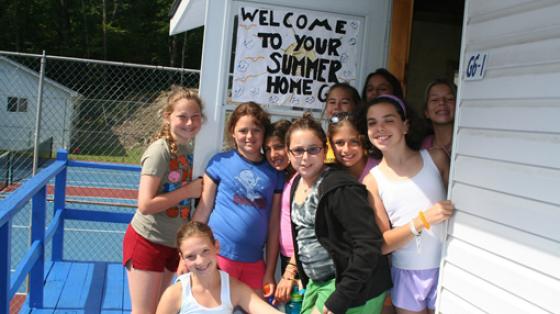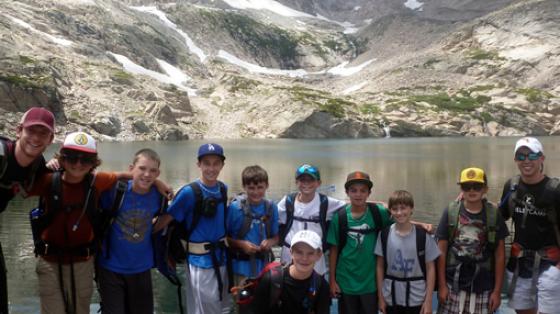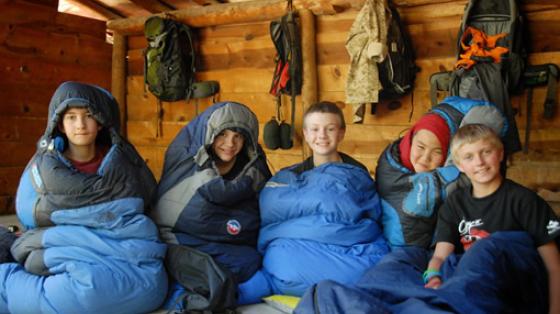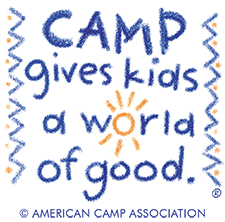When you receive a camp's brochure, you will invariably have questions for the camp director. From that first phone call or letter, you begin developing an impression of what a particular camp is like and how it's run. A camp may be described in nothing less than glowing terms in its brochures. The setting may be absolutely breathtaking. Activities may run the gamut from racquetball to modern dance. In the end, however, it's the human equation of how those activities are operated and conducted that determines the quality of the camp program. Get to know the camp director as a person through telephone conversations, correspondence, and a personal visit. Have the director describe the camp's philosophy and how it is carried out by the staff.
What is the camp's philosophy and program emphasis?
Each camp has its own method of constructing programs based on its philosophy. Does it complement your own parenting philosophy? Many camps actively promote competition and healthy rivalry among camp teams, as reflected in team sports. For many campers this is pure fun. Some parents feel that learning to be competitive at an early age teaches essential survival skills. However, other parents and educators are in favor of cooperative learning. Research has shown that noncompetitive methods encourage young people to learn more, retain it longer, and develop greater self-esteem and appreciation for others. Knowing your child's personality and style of learning is valuable in selecting the right camp.
What is the camp director's background?
ACA minimum standards recommend directors possess a bachelor's degree, have completed in-service training within the past three years, and have at least 16 weeks of camp administrative experience before assuming the responsibilities of director.
What training do counselors receive?
At a minimum, camp staff should be trained in safety regulations, emergency procedures and communication, behavior management techniques, child abuse prevention, appropriate staff and camper behavior, and specific procedures for supervision.
What is the counselor-to-camper ratio?
ACA standards require different ratios for varying ages and special needs. Generally, the ratios at resident camps range from one staff for every six campers ages 7 and 8; one staff for every eight campers ages 9 to 14; and one staff for every 10 campers ages 15 to 18. At day camps the ratios range from one staff for every eight campers ages 6 to 8; one staff for every 10 campers ages 9 to 14; and one staff for every 12 campers ages 15 to 18.
What are the ages of the counselors?
ACA standards recommend that 80 percent or more of the counselor/program staff be at least 18 years old. Staff must be at least 16 years old and be at least two years older than the campers with whom they work.
What are desired qualities in camp staff?
The same qualities of trustworthiness and dependability sought by any employer are valued commodities in camp employees. Also, the ability to adapt to a variety of situations, empathy for and ability to work with camp clientele, a strong self-image, and an outgoing personality are important characteristics for camp staff.
What percentage of the counselors returned from last year?
Most camps have from 40-60 percent returning staff. If the rate is lower, find out why.
How are behavioral and disciplinary problems handled?
This is where the director's philosophy comes through loud and clear. Positive reinforcement, assertive role-modeling and a sense of fair play are generally regarded as key components of camp counseling and leadership. Rules are necessary in any organization, and the disciplinary approach taken should be reasonable and well communicated. If penalties are involved for violations, they should be applied quickly, fairly, calmly, and without undue criticism to campers.
How does the camp handle special needs?
If your child has special requirements, ask the camp director about needed provisions and facilities. Is there a nurse on staff? A designated place to store insulin or allergy medicine? Are special foods available for campers with restricted diets? Every question is important.
How does the camp handle homesickness and other adjustment issues?
Again, the camp's philosophy on helping children adjust is important. Be sure you are comfortable with the camp's guidelines on parent/child contact.
What about references?
This is generally one of the best ways to check a camp's reputation and service record. Directors should be happy to provide references.
Is the camp accredited by the American Camp Association? Why? Why not?
It is only logical that members of your family attend an ACA-accredited camp. Accreditation visitors ask the questions — up to 300 of them — regarding essential health, safety, and program quality issues important to a camp's overall operation. This does not guarantee a risk-free environment, but it's some of the best evidence parents have of a camp's commitment to a safe and nurturing environment for their children.




 ACA’s Commitment
ACA’s Commitment